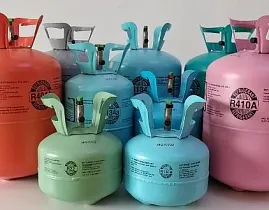
The 20 year GWPs promoted by Shecco are not something that is new, and are discussed by EFCTC on its website in LEARN ABOUT… Selecting and Using GWP values for Refrigerants. This includes 20 year GWPs for the HFCs (AR4 and AR5 values). When considering 20 year and 100 year GWPs and the contribution of HFCs to global warming here are some important points.
The use of 100 year time horizons is recommended and indeed these are the only GWPs referenced in the Kyoto Protocol and F Gas Regulation for compliance and reporting purposes. At UNFCCC COP24 it was decided to use GWP (100) for reporting national emissions to the Paris Using 20 year time horizons for HFCs distorts the relative contribution of CO2 . Over 90% of the CO2 contribution would be ignored as it is long lived in the atmosphere, with its lifetime measured in centuries. 100 year GWPs are the agreed balance between short and long term effects.
The contribution of HFCs to global warming is well characterised and does not rely on GWP but on the intrinsic properties of each HFC. The HFC contribution by 2020 is 1.13% of the total direct radiative forcing by long lived greenhouse gases since 1750. Carbon dioxide CO2 has accounted by far the biggest contributor to increases in climate forcing since 1990. Contributions to global warming are absolute, GWPs are relative.
Energy efficiency is critical to overall emissions and lower GWP HFCs such as HFC 32 and the HFOs contribute to energy efficient systems with their good balance of safety and technical properties The Kigali Amendment to the Montreal Protocol is projected to reduce future global average warming in 210 0 due to HFCs from a baseline of 0.3 0.5 °C to less than 0.1 °C. Only marginal increases are projected for CO2 eq emissions of the low GWP alternatives including the HFOs due to their ultra low GWPs, similar to HCs and CO2
Widely used HFCs have lifetimes of years or decades.
Greenhouse Gases (GHGs) that are much shorter lifetimes than CO 2 such as some HFCs such as HFC 32 (lifetime ~5.2 years) and HFC 134a (lifetime ~13.4 years) behave very differently to long lived CO2 :




